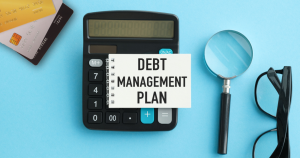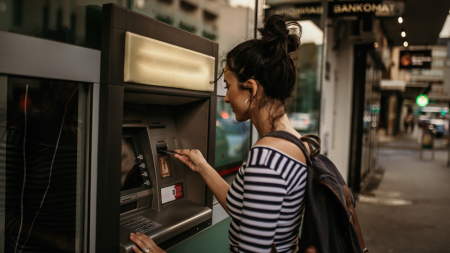PeopleImages/E+/Getty Images
Key takeaways
- Pending charges on credit cards are charges that have been authorized by your credit card issuer but have not been completely processed by the merchant.
- Some pending transactions act as temporary holds to ensure payment for potential damages or incidental expenses.
- Pending charges typically take up to three days to clear with the merchant but can take longer.
- Issues with pending charges should be resolved with the merchant, not the card issuer.
Have you ever checked your credit card account and seen a transaction listed as “pending” — sometimes for days or weeks after a purchase? When using a credit card, it’s normal for charges to sit in limbo as pending transactions, especially for large ticket items, restaurant bills or hotel stays — but for how long?
And what if you have an issue and want to cancel a charge while it is still pending? Let’s take a look at when a pending charge should clear and what to do if you run into an issue.
What does it mean when a transaction is pending?
When you swipe your credit card to make a purchase, the merchant’s acquiring bank — which handles the payments for the merchant — communicates with your card issuer to make sure that you have a valid account with sufficient funds to make the purchase. The funds are deducted from your available credit line as a pending transaction but are not yet paid to the merchant.
Although any transaction can be listed as pending, doing business with certain types of businesses will almost always result in a pending transaction for a period of time. For example, it is customary in the hotel industry to place a hold on your credit card when you check in for your stay. This helps cover the hotel for any damage you cause to the room and for incidental expenses — such as snacks or drinks. Car rental companies could also place a hold on your card to cover incidental expenses, which would show up as a pending charge.
In the restaurant industry, your final tab will likely include a customary tip. In many cases, your initial payment will be a pending payment until the bill is finalized. At gas stations, too, proprietors will likely place a small hold on your card to ensure you have enough funds available to pay the bill.
How long does it take for a pending charge to clear?
Usually, a pending charge will show on your account until the transaction is processed and the funds are transferred to the merchant. This could typically take up to three days but may stretch longer depending on the merchant and the type of transaction.
In the meantime, the pending charges will reduce the amount of credit you have available on your card. Be sure to account for this whenever you use your credit card.
So how long do pending transactions take to clear? Here’s a list of some common types of pending credit card transactions and when you can expect them to be resolved:
- Normal credit card purchases: Using your credit card at a retail or grocery store could result in a pending charge on your card. These charges will remain as pending until the merchant finalizes the charge, which will typically be resolved within three business days.
- Online purchases: Like in-store purchases, using your card to purchase an item online could result in a pending transaction. Again, these transactions will appear as pending until the merchant processes the transaction — although it may remain as pending until the purchase is shipped. In either case, the charge is likely to be resolved within three business days.
- Hotel stays: Even if you use a co-branded hotel credit card, most hotels will place a hold on your card for a certain dollar amount when you check in. This pending transaction will cover things such as incidental charges and damages. Pending charges from hotels are typically resolved shortly after you check out.
- Rental car bookings: Most rental car companies will place a hold on your credit card to cover damages and incidental charges (like gas or entertainment options) during the rental period. The hold should be removed and any pending charges resolved soon after you return the car.
- Gas station purchases: Likewise, when you use your credit card at a gas pump, many gas stations will place a temporary hold on your card to ensure you have enough funds to pay for the gas you are about to dispense. These charges will appear as pending until the station finalizes your purchase and adjusts the charge to the correct amount.
- Credit card returns: Refunds received for returned items will typically appear as a pending transaction on your card. As with other types of pending transactions, these will typically take up to three business days to post.
What causes pending transactions?
A pending transaction on your credit card is simply a transaction that has been approved by your issuer but not yet paid to the merchant. When you see a pending charge on your card, it means that the merchant’s payment processor has contacted your card issuer but the merchant hasn’t fully completed the transaction.
Pending transactions can show up on your account for a variety of different reasons. In some instances, as is the case with hotels and rental cars, a merchant may place a hold your account for possible incidental or damage charges you may incur. Other times, the pending charge may just mean that the merchant has yet to finalize the charge through their payment processing company. In most cases, pending charges on your credit card will be resolved within a few business days.
What to do if there’s a problem with your pending transaction
What if you have an issue with a pending transaction? In some cases, a merchant may duplicate a charge. For instance, an online merchant could verify your card when you make the purchase and then authorize your card when you are actually due to make the payment (typically after the merchant ships your order). While this sort of hold could appear twice in your pending transactions, you should only be billed once.
Card issuers are not inclined to resolve issues with pending transactions because the payment is not yet finalized and the actual amount due may differ. That’s why you should contact the merchant to sort out any issues you have with pending transactions. If you want to cancel a pending transaction, the merchant must contact your card issuer and ask it to cancel the transaction.
And what if the merchant is unwilling to sort out an issue with a pending transaction? Perhaps you can’t even reach a representative to sort out your issue. Unfortunately, you can’t dispute a pending transaction with your card issuer. You will have to wait until a transaction actually posts to resolve the matter. You could then take advantage of protections offered through the Fair Credit Billing Act, which could include filing a dispute about the charge with your card issuer.
The bottom line
Credit card charges typically show up as pending transactions on your account until the transaction is processed or a hold is removed. This could stretch out several days. If you have an issue while a transaction is pending, you will have to resolve it with the merchant. You can’t dispute a pending charge with a card issuer and will have to wait for it to actually post before your issuer is likely to take any action.
Read the full article here









